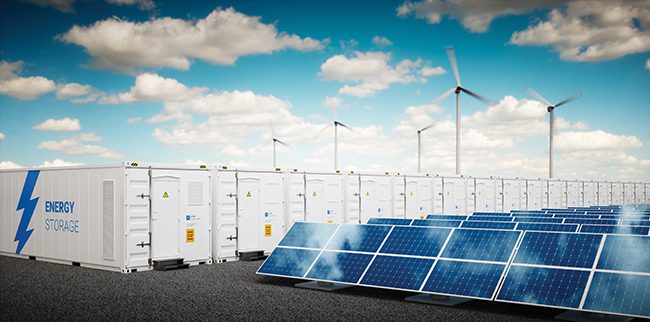The ambiguity surrounding the international tariff conflict is altering the framework of mergers and acquisitions (M&A) within the energy realm. This evolving atmosphere presents both hurdles and prospects for investors, urging them to maneuver through a complicated network of trade regulations, supply chain interruptions, and geopolitical transformations.
Hurdles and Prospects: The shifting trade regulations and tariffs have generated a considerable degree of ambiguity within the energy domain. This has resulted in a cautious stance toward M&A endeavors. Although new energy deal initiations on Datasite, an M&A platform facilitating approximately 19,000 new deals annually, remained stable in the first four months of this year compared to last year, retention rates surged by two percentage points, and closure rates increased by nine percentage points.
COMMENTARY
This pattern reflects global trends, where new deal initiations, particularly in asset disposals and mergers, on Datasite rose by 4% year-over-year (YoY) during the initial four months of the year. Similarly, deal retention rates on Datasite rose by four percentage points during the same timeframe.
Nevertheless, the consequences of tariffs have been tangible. Global deal initiations on Datasite decreased by 15% YoY in April, following an 11% increase in the first quarter. This decline coincided with the initial significant U.S. tariff announcement on April 2. As a result, deal completion probabilities also diminished, plummeting to 44%, down from 49% YoY.
Impact on Oil and Gas M&A: The uncertainty created by tariffs has significantly influenced the oil and gas M&A sector. Several deals have been postponed or held back as global buyers conduct more in-depth due diligence. The utilization of virtual data rooms, where buyers scrutinize deal information using inquiry and response tools, has become increasingly prevalent. Tariff risk assessment is now a vital element of every valuation framework.
Mitigating Factors: Despite the obstacles, there are elements propelling deal activity within the energy space. Technological advancements, expense reductions, and the increasing demand for zero-carbon alternatives are generating opportunities for M&A. These advancements provide a degree of balance to the adverse effects of tariffs and trade uncertainties.
For instance, with demand and energy consumption by data centers, particularly those powering artificial intelligence, anticipated to rise by 10% to 15% annually until 2030, firms are hastening to secure resources and infrastructure. According to the International Energy Agency (IEA), global electricity demand from data centers, cryptocurrencies, and artificial intelligence (AI) could more than double by 2026, reaching over 1,000 terawatt-hours (TWh) annually, roughly equal to Japan’s aggregate electricity consumption.
A significant portion of this expansion is driven by AI models requiring high-performance computing resources, especially extensive language models and generative AI applications reliant on vast server networks. This trend is spurring renewed interest in nuclear power as a reliable, carbon-neutral energy source capable of providing continuous operations without the intermittency issues of solar or wind. However, geopolitical tensions and trade limitations on critical materials like enriched uranium and advanced reactor components could hinder progress. Thus, businesses must meticulously account for these regulatory, logistical, and supply chain considerations when assessing potential investments in the evolving energy domain.
Navigating Instability: The fluctuations in the trade climate necessitate vigilance among dealmakers. Policy alterations can either hasten or postpone deal schedules, and preparedness is essential. Anticipating heightened review levels and extended review timelines is crucial. Utilizing technology, particularly artificial intelligence (AI), can streamline the due diligence process and improve efficiency.
The Role of AI in M&A: AI is already revolutionizing the M&A landscape by identifying potential targets, automating due diligence, and employing predictive analytics to enhance accuracy. Currently, one in five dealmakers utilizes generative AI in the M&A process, and many rank AI integration as their foremost operational priority this year.
Strategies for Prosperity: To excel in this transforming landscape, dealmakers must fortify their due diligence practices, strategically harness AI, anticipate regulatory examination, and stay ahead of geopolitical changes. Proactive measures, including prioritizing deal readiness and using technology to mitigate hazards, will be crucial for success.
Although the international tariff war has imposed considerable challenges for European energy M&A, it has also highlighted the significance of adaptability and innovation. By adopting proactive measures and leveraging technological advancements, dealmakers can navigate the intricacies of the current trade environment and seize emerging opportunities. The key to triumph lies in preparation, vigilance, and the strategic deployment of AI to improve efficiency and precision in the M&A process.
—Mark Williams is Global Chief Revenue Officer at Datasite Enterprise, a business unit of Datasite, a leading SaaS platform utilized by enterprises worldwide to execute complex, strategic projects.

